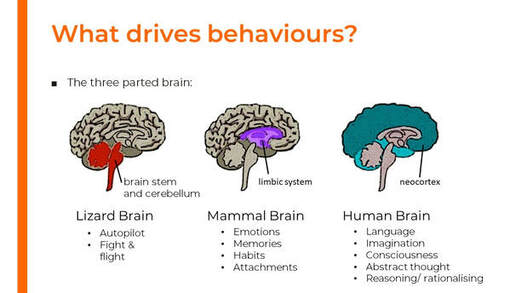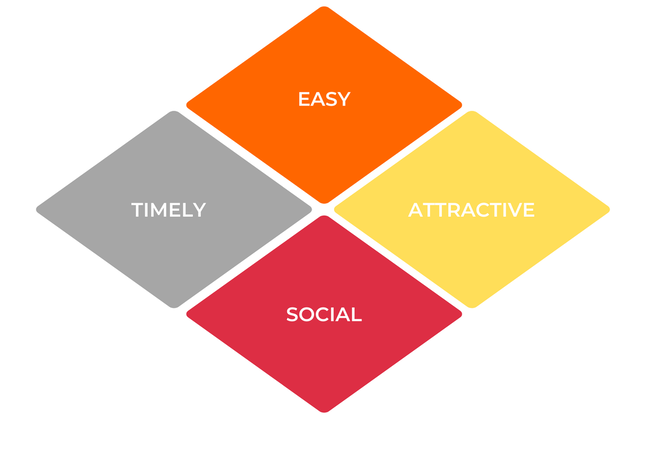Making behaviour change in the workplace easy, attractive, social and timely
So before you send another angry email about the recycling contamination or invest in thousands of reusable coffee cups, read this.
- Pleasure and pain avoidance
- Identity
- Social acceptance
- Repetition, habits
- Family
- Tell people that they are doing something wrong (people experience cognitive dissonance when their behaviours and views of themselves are at odds so they can switch off from your message)
- Send an email or put up a poster (information deficit and inattentional blindness can mean that messages are not read or even noticed).
|
In fact, there are many influences which need to be understood and worked with if we really want behaviours to change such as:
|
But, if you already have taken some steps to address a behaviour and you are wondering why it is not working, then a quick reference guide and checklist is the acronym EAST, a framework developed by the Behavioural Insights team who advise civil servants on behaviour change initiatives.
EAST stands for Easy, Attractive, Social and Timely
Here are some examples of this could be applied to office recycling and encouraging the use of reusable boxes or coffee cups at lunchtime.
Easy
- This could be by removing the other easy, default options such as under-desk bins, if you want people to recycle or the disposable lunchbox from the canteen.
- Alternatively removing the barriers to the behaviour e.g. if people struggle to remember a reusable box or coffee cup at lunchtime, put a box of them by the door.
Attractive
- It is amazing how many people feel uncomfortable using Tupperware or reusable coffee cups in an office without a dishwasher, due to cleanliness concerns. People don’t even like to use Tea towels!
- It is also why providing people with good quality, and attractive reusable water bottles and coffee cups will improve take-up over a cheap plastic one which is not attractive or classy- although just providing people with a reusable coffee cup or water bottle is NOT enough to change a behaviour.
Attractive also refers to the behaviour being rewarded or acknowledged with positive reinforcement
Social
- This means highlighting how many people are doing the desirable behaviour rather than the undesirable one e.g. highlight the positive recycling achievements rather than the contamination as people will think that there is no point if no-one else is making an effort.
- Getting key messengers such as senior leadership and popular people to lead by example
- In many offices, people eat from a takeaway box at their desks, because everyone else does and having a lunch break is perceived to be ‘work-shy’ in that office culture. To break this, organising lunchtime socials with senior management in the canteen where everyone uses plates could start to break this down
Timely
- This is why recycling information should be on the top of a bin where people are looking when they wonder where to chuck an item.
- If you want people remember a reusable lunchbox or coffee cup send them a reminder through your intranet or by email just before lunchtime, not in the morning.


10% of all online courses go to grassroots charities.
20% of all consultancy and bespoke workshops go for rewilding.
50 free places are awarded to campaigners from underrepresented communities each year.






